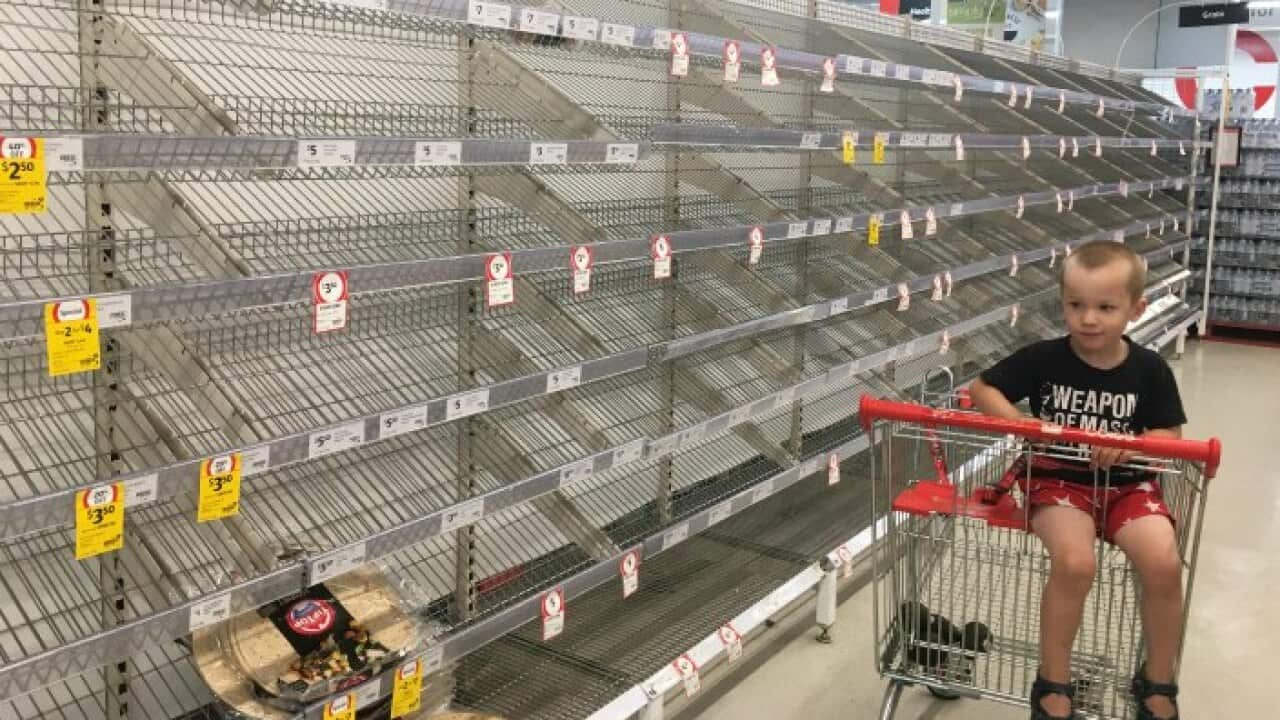As a result of bushfires, the residents of Melbourne have recently dealt with some of the worst air quality in the world. Those who stayed on country to continue battling bushfires have been exposed to much worse, for far longer.
Aboriginal Community Controlled Organisations (ACCHOs) have been on the front-line assisting those who have remained, from acting as evacuation centres to distributing much-needed supplies and medical assistance.
But many told NITV News they are struggling to keep up with the demand, and deteriorating conditions are impacting on staff.
David Morgan is the CEO of Ramahyuck District Aboriginal Corporation in Sale, where fires have devastated surrounding East Gippsland. He said the smoke was so thick on Wednesday he couldn't see further than 20 metres.
"It's actually starting to piss us off that all the emphasis is on Melbourne," Mr Morgan said.
He said 10 per cent of his staff were home sick due to the smoke and other illness. At the same time, the office in Morwell had to close its doors because the air-conditioning was failing to filter smoke out of the building.
"The staff are still really dedicated, but it's just horrendous. We can't perform our services."
The air quality across East Gippsland has been at "hazardous" for most of the week and eased to "very poor" on Thursday. Levels in Victoria are forecast to stay poor for months.
Shortage of P2 masks
The Environment Protection Authority Victoria (EPA) had advised people to stay indoors where possible and to wear P2 face masks when outside. But ACCHOs said they do not have enough masks to meet the demand. P2 masks are disposable, and need to be replaced often to be effective.
"We have a shipment arriving tomorrow, but the main issue with that is we don't need them by the hundreds, we need them by the thousands," Mr Morgan said.
"Everyone, including the governments, should have been planning a lot better for this one. We should have had the masks a lot sooner."
"I'm really concerned for the elderly, the young, and those with multiple chronic conditions."
Jamie Williamson from the Gippsland & East Gippsland Aboriginal Co-Operative in Bairnsdale cited similar issues.
"We've been fortunate to get our hands on some [P2 masks], but we don't have enough in the region," he said.
"We've heard varying reports on the effectiveness of them and how long they last for, from four hours to one day.
"And we've been receiving relatively small numbers... so if we're to apply them as they're prescribed we're going to run out very quickly."
David Noonan from the Albury-Wodonga Aboriginal Health Service in the north of the state, where air-quality has also been hazardous, said while it has been uncomfortable they haven't suffered from a shortage of P2 masks.
He said communities surrounding the area are welcome to their service on Friday to collect donations such as food vouchers and masks.
Meanwhile, the state peak body for ACCHOs announced on Thursday morning it will deliver a truck-load of P2 masks and water bottles to the Gippsland region.
There is still very little information on the long-term health impacts of exposure to bushfire smoke, and the effectiveness of P2 masks.
Calls for culturally safe, collaborative approach
ACCHOs said more consultation with communities on the front line needs to occur before policies are announced, such as the recent federal and state Victorian government's separate bushfire mental health responses.
"From a layman's perspective, why couldn't we have a combined approach around mental health instead of having the community controlled sector having to deal with two separate approaches?" Mr Williamson asked.
Both the Bairnsdale and Sale ACCHOs would like to see a 'collaborative' approach from governments, and 'no strings attached' funding.
"What we need is a strong collaborative approach where we as Aboriginal people are sitting at the table and involved in the state and federal response," Mr Williamson said.
"Not some Aboriginal bureaucrat speaking on our behalf."


